Understanding the Shelf Life of Makeup: A Guide to Product Expiration and Safety
Related Articles: Understanding the Shelf Life of Makeup: A Guide to Product Expiration and Safety
Introduction
With great pleasure, we will explore the intriguing topic related to Understanding the Shelf Life of Makeup: A Guide to Product Expiration and Safety. Let’s weave interesting information and offer fresh perspectives to the readers.
Table of Content
Understanding the Shelf Life of Makeup: A Guide to Product Expiration and Safety
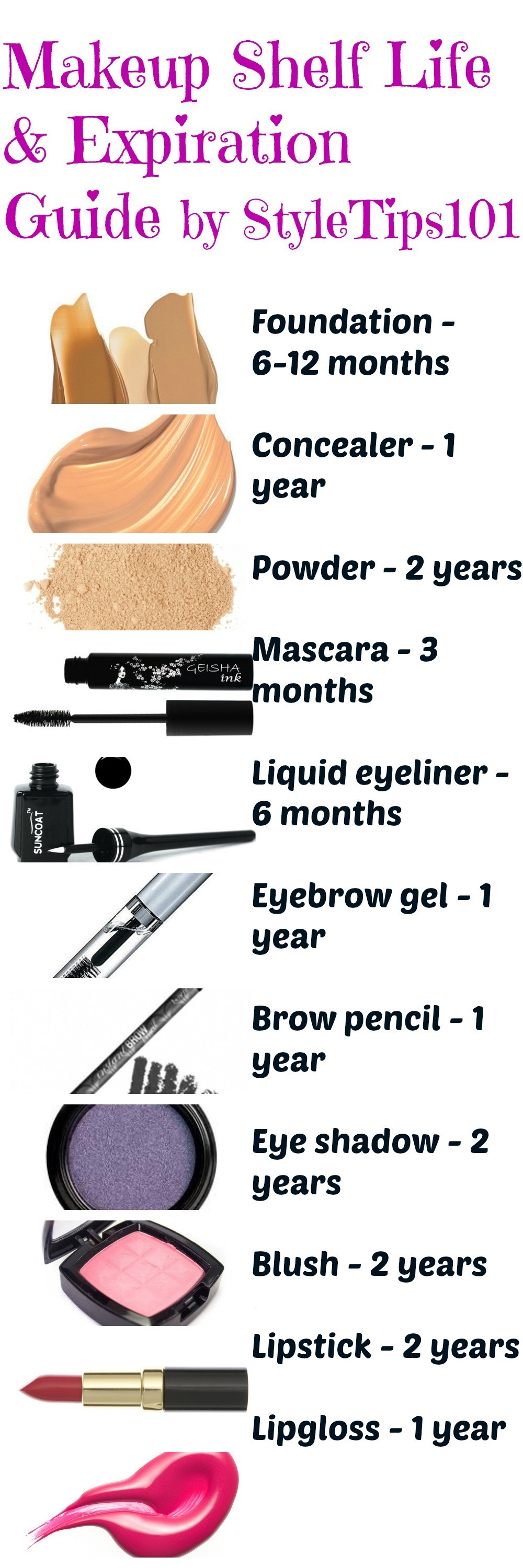
The world of cosmetics is a captivating realm of textures, colors, and scents, promising to enhance our natural beauty. However, the allure of these products is often accompanied by a less discussed aspect: their shelf life. While makeup can certainly bring a sense of confidence and joy, it’s crucial to acknowledge that these products, like many other consumables, have a finite lifespan.
The Importance of Expiration Dates
The expiration of makeup products is a matter of both safety and efficacy. Over time, the ingredients within cosmetics can degrade, potentially leading to:
- Changes in Texture and Consistency: Makeup can become clumpy, dry, or oily, making application difficult and impacting the intended finish.
- Loss of Efficacy: The active ingredients in products like sunscreen or anti-aging creams can lose their potency, rendering them ineffective.
- Bacterial Growth: The moist environment of some cosmetics can become a breeding ground for bacteria, potentially leading to skin irritation, infections, or allergic reactions.
Understanding Expiration Dates: A Closer Look
While many makeup products lack explicit expiration dates, it is crucial to understand the concept of "shelf life," which refers to the period during which a product remains safe and effective.
Factors Influencing Shelf Life:
- Ingredients: The composition of a product plays a significant role. Products with water-based formulas tend to have shorter shelf lives than oil-based ones.
- Packaging: The type of container and its seal impact the product’s susceptibility to air, light, and microbial contamination.
- Storage Conditions: Exposure to extreme temperatures, humidity, and sunlight can accelerate the degradation process.
Decoding the Symbols:
While not universally standardized, some common symbols indicate product expiration:
- PAO (Period After Opening): This symbol, often depicted as an open jar with a number inside, indicates the number of months a product remains safe and effective after opening.
- Expiration Date: Some products might display a specific date indicating the end of their shelf life.
Guidelines for Makeup Shelf Life:
- Mascara: 3 months after opening.
- Eyeliner: 6 months after opening.
- Lipstick and Lip Gloss: 12 months after opening.
- Foundation and Concealer: 12-18 months after opening.
- Powder Products (Blush, Bronzer, Eyeshadow): 24 months after opening.
- Sunscreens: Check the product label for specific recommendations, as the efficacy of sunscreens can diminish over time.
FAQs about Makeup Expiration:
1. What happens if I use expired makeup?
Using expired makeup poses several risks, including:
- Skin Irritation: Degraded ingredients can cause redness, itching, and breakouts.
- Infections: Bacterial growth can lead to eye infections, conjunctivitis, and other skin problems.
- Allergic Reactions: The breakdown of ingredients can trigger allergic responses.
2. Can I use expired makeup if it still looks and smells normal?
While a product may appear unchanged, its chemical composition can still be compromised. It’s best to err on the side of caution and discard any expired products.
3. How can I tell if my makeup is expired?
- Changes in Texture: Clumping, drying, or oiliness are telltale signs.
- Color Change: Fading, discoloration, or a change in the product’s usual hue can indicate spoilage.
- Unusual Odor: A rancid or pungent smell is a clear warning.
4. Can I use expired makeup on other parts of my body?
No. Makeup is specifically formulated for facial use and should not be applied to other areas of the body.
5. Can I extend the shelf life of my makeup?
While you can’t completely prevent expiration, proper storage practices can help prolong the life of your cosmetics:
- Store in a cool, dry place: Avoid extreme temperatures and direct sunlight.
- Keep containers tightly closed: This prevents air and moisture from entering and accelerating degradation.
- Clean applicators regularly: This reduces the risk of bacterial growth.
- Avoid sharing makeup: Sharing makeup tools or products can spread bacteria and increase the risk of infections.
Tips for Responsible Makeup Use:
- Invest in smaller sizes: This helps to avoid product waste and ensures you use makeup within its recommended shelf life.
- Practice good hygiene: Wash your hands before applying makeup and use clean applicators.
- Discard products promptly: Once a product shows signs of spoilage, it’s time to replace it.
- Be mindful of your skin: Pay attention to any reactions or changes in your skin after using makeup, and consult a dermatologist if needed.
Conclusion:
The expiration of makeup products is not just a matter of aesthetics; it’s a critical aspect of safety and efficacy. By understanding the factors that influence shelf life, recognizing warning signs, and practicing responsible storage and hygiene, you can ensure that your makeup routine is both beautiful and safe. Remember, investing in quality products and adhering to recommended guidelines will help you enjoy the benefits of cosmetics without compromising your skin’s health.
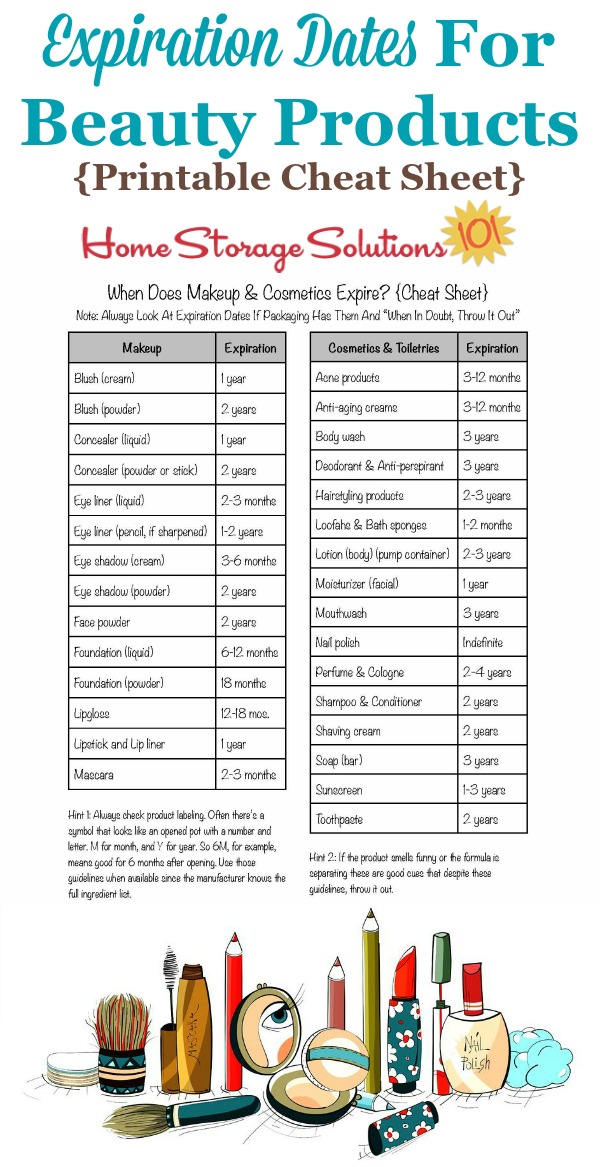

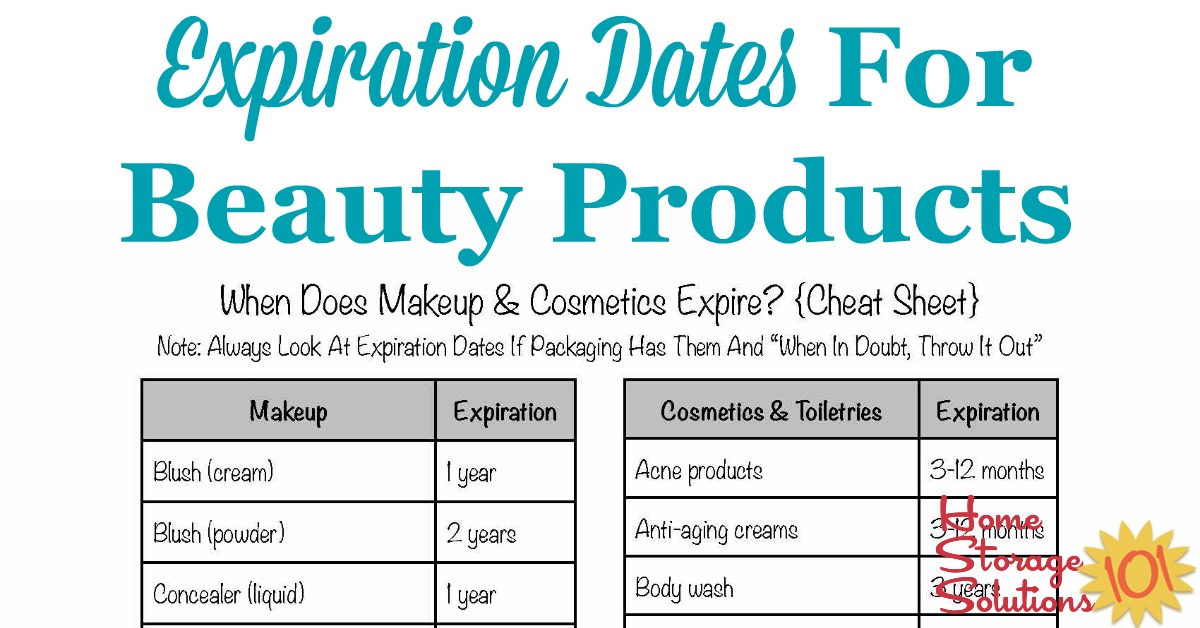
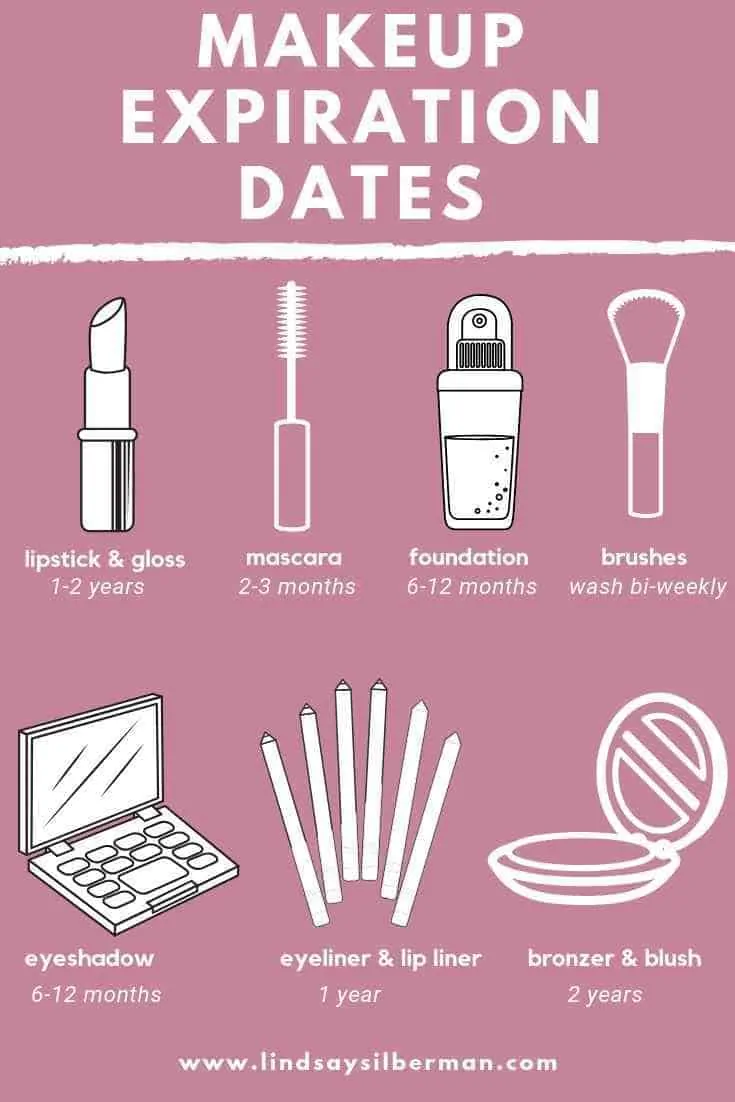

:max_bytes(150000):strip_icc()/how-often-replace-toiletries-1-de368f8c1b224b0dada7f4d1d40e35e1.jpg)
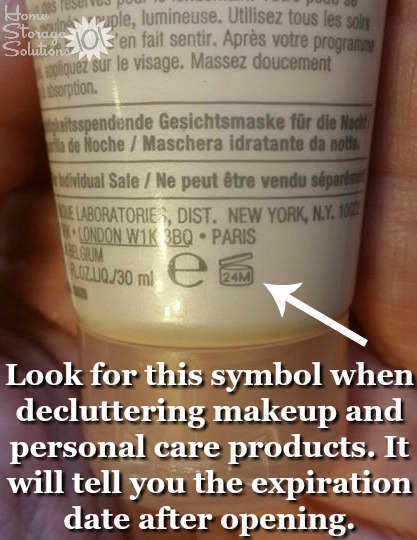
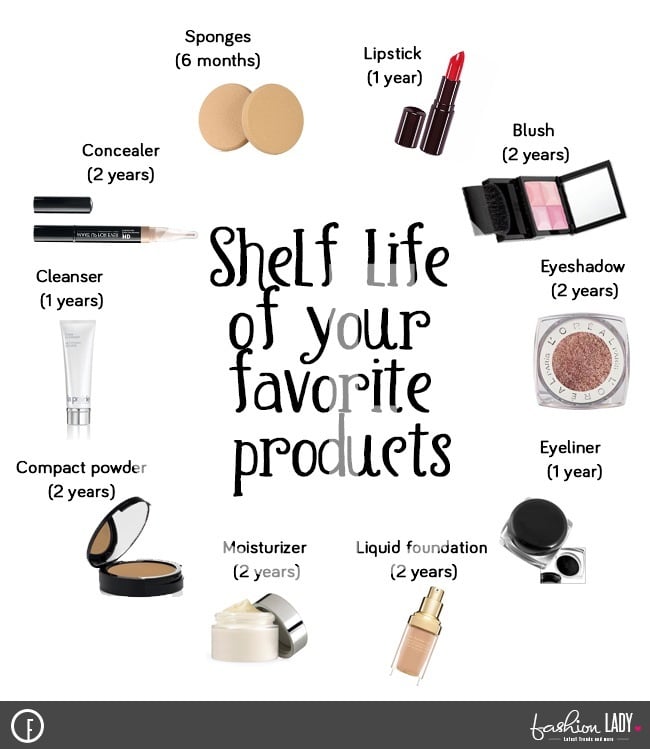
Closure
Thus, we hope this article has provided valuable insights into Understanding the Shelf Life of Makeup: A Guide to Product Expiration and Safety. We appreciate your attention to our article. See you in our next article!